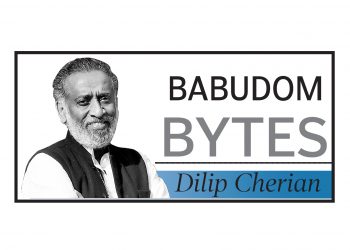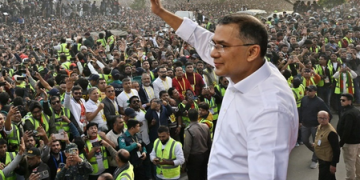I n a significant development in a more than decade-old Case, the Supreme Court has handed a major victory to the Delhi Metro Rail Corporation (DMRC) by overturning its earlier directive. Previously, the apex court had ordered DMRC to pay an arbitration award of Rs 8,000 crore to Anil Ambani’s firm, Delhi Airport Metro Express Ltd (DAMEPL). The court’s reversal is a damning indictment of the arbitral process, citing a “huge miscarriage of justice”.
Consequently, the execution proceedings in the Delhi High Court were halted, and DMRC was absolved of the obligation to make the exorbitant payment. Moreover, the court directed the refund of amounts already deposited by DMRC, aiming to restore both parties to their pre-verdict positions. The legal dispute originated from a “concession agreement” dating back to 2008, governing the construction, operation and maintenance of the Delhi Airport Metro Express Line. Tensions escalated when DAMEPL terminated the contract in 2012, claiming “unresolved structural defects by DMRC”. In the ensuing legal battle, DAMEPL won in 2017, leaving DMRC with an exorbitant liability of Rs 8,000 crore-plus to be paid to the Anil Ambani firm. Now, that case is closed. But the ruling does underscore one important aspect for us to ponder: the unpredictability and complexity inherent in arbitration disputes involving government entities and private firms. A case that dragged on for 12 years also shows how slow and meandering the judicial processes in India. Even more significantly, it prompts serious reflection on the accountability and transparency of government babus in presenting their case effectively and fairly, especially in matters of public interest and significant financial implications.
Forest officers call for probe into colleague’s death
Indian Forest Service (IFoS) officers are deeply troubled by the recent suicide of a colleague in Meghalaya. The Chief Conservator of Forests, N. Luikham, tragically took his own life by hanging in his official residence recently. This unfortunate event has sparked a demand from the central unit of the IFoS Association for a thorough probe into the circumstances leading to Luikham’s death, and for accountability for those who may have contributed to his decision.
Sources informed DKB that the association Secretary General Suneesh Buxy has written to Meghalaya Chief Secretary Donland Phillips Wahlang, claiming that Luikham had been falsely accused by a junior colleague last month of sexually harassing her and was under stress and mental trauma because of these allegations. Buxy, reportedly, attributed these allegations to pressure from a powerful mining lobby against whom Luikham had taken a stand. Despite an inquiry yielding no substantive evidence against the officer, the damage to his reputation had been done. The ramifications of the officer’s death are felt deeply by the entire IFoS community, resonating as a blow to the morale of officers nationwide. The association has called for a CBI investigation into Luikham’s suicide. The officer’s erstwhile colleagues insist on swift and decisive action to hold accountable any individuals found to have played a role in perpetuating the circumstances that led to the tragedy.
EC puts pressure on Gujarat govt to fill key IPS positions
The Election Commission of India (ECI) has put the spotlight on the Gujarat government. With the nomination for 26 Lok Sabha seats and five Assembly seats underway, the poll panel has directed the state government to swiftly submit a list of IPS officers to fill vacant positions in the state immediately. This move comes in the wake of the model code of conduct being enforced, which mandates that state governments seek the Election Commission’s approval before making any appointments or promotions. Such measures aim to prevent any undue influence on the election process. The vacancy situation in key posts, including the Surat Police Commissioner and three range Inspector Generals, along with positions like Superintendent of Police of Kheda and Mehsana, has been lingering for more than two months. The delay, observers say, is attributed to various factors, such as four IPS officers proceeding on Central deputation last year and five officers being placed on leave reserve by the Election Commission due to their extended postings in a single Lok Sabha constituency for three years. Of course, another factor for the delay, which is obviously not mentioned, is that senior Gujarat government appointments are made only after a green signal from the Prime Minister’s Office (PMO). But now with the Election Commission at the helm, the appointments will be implemented swiftly.






































